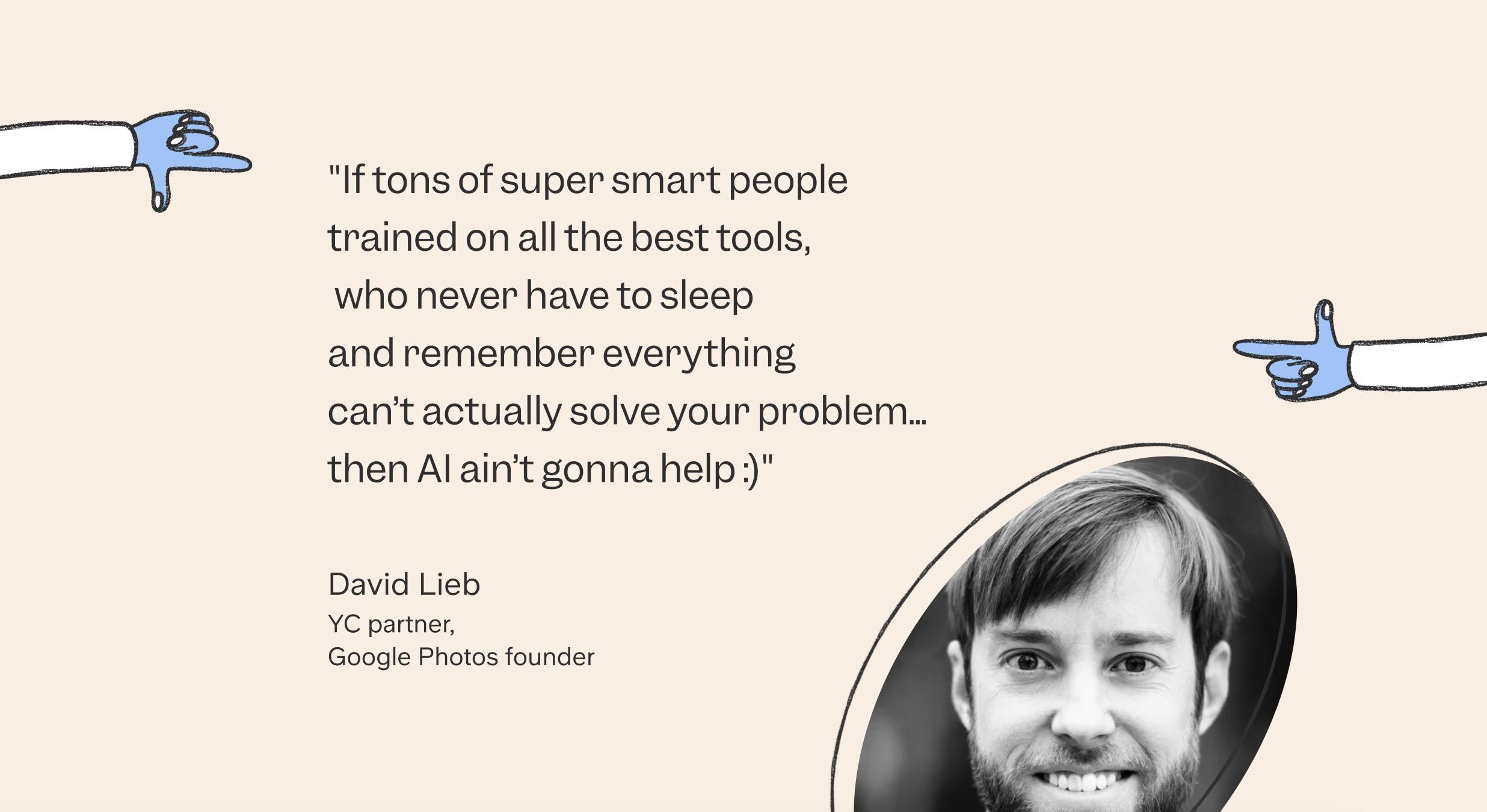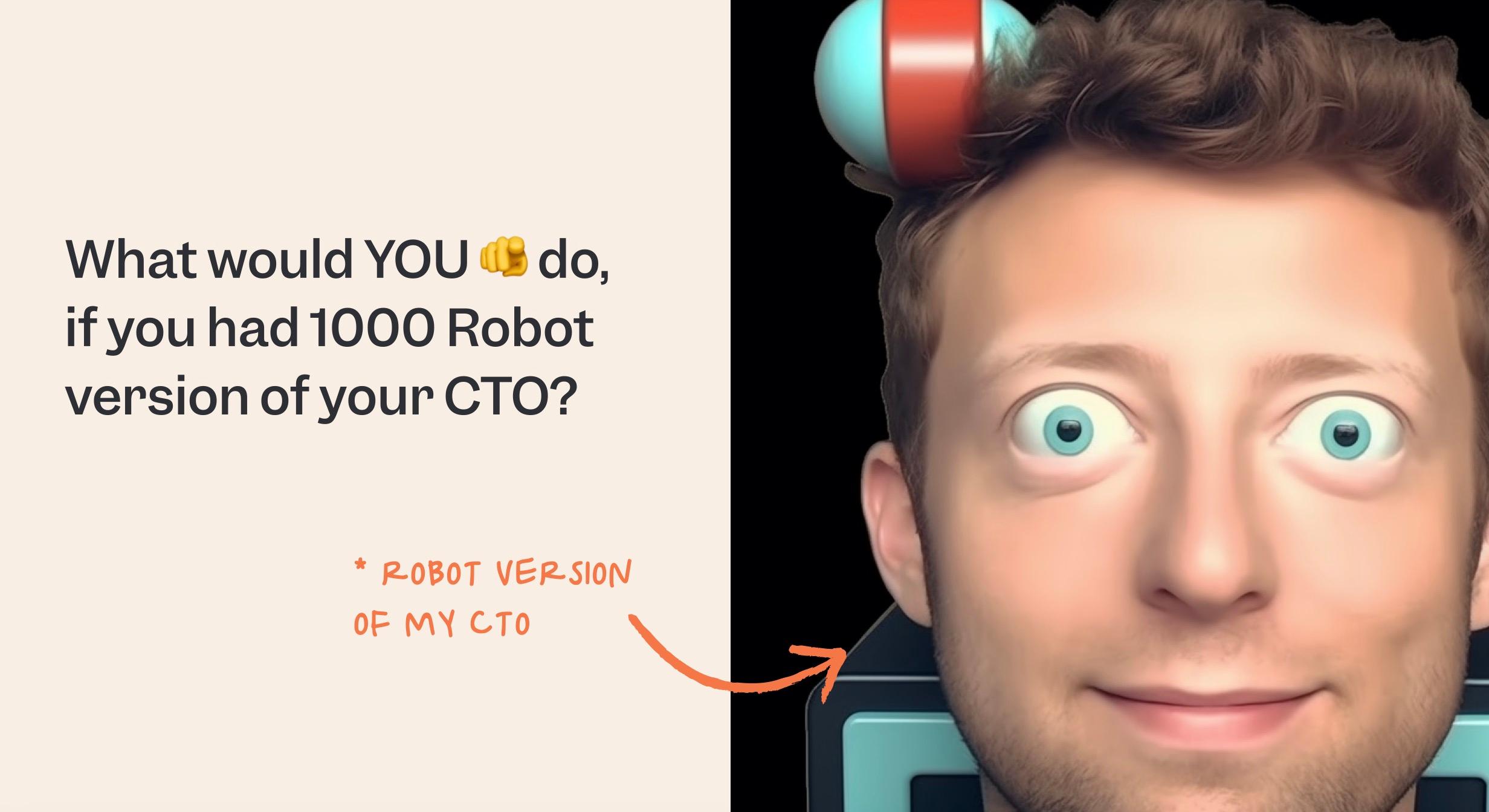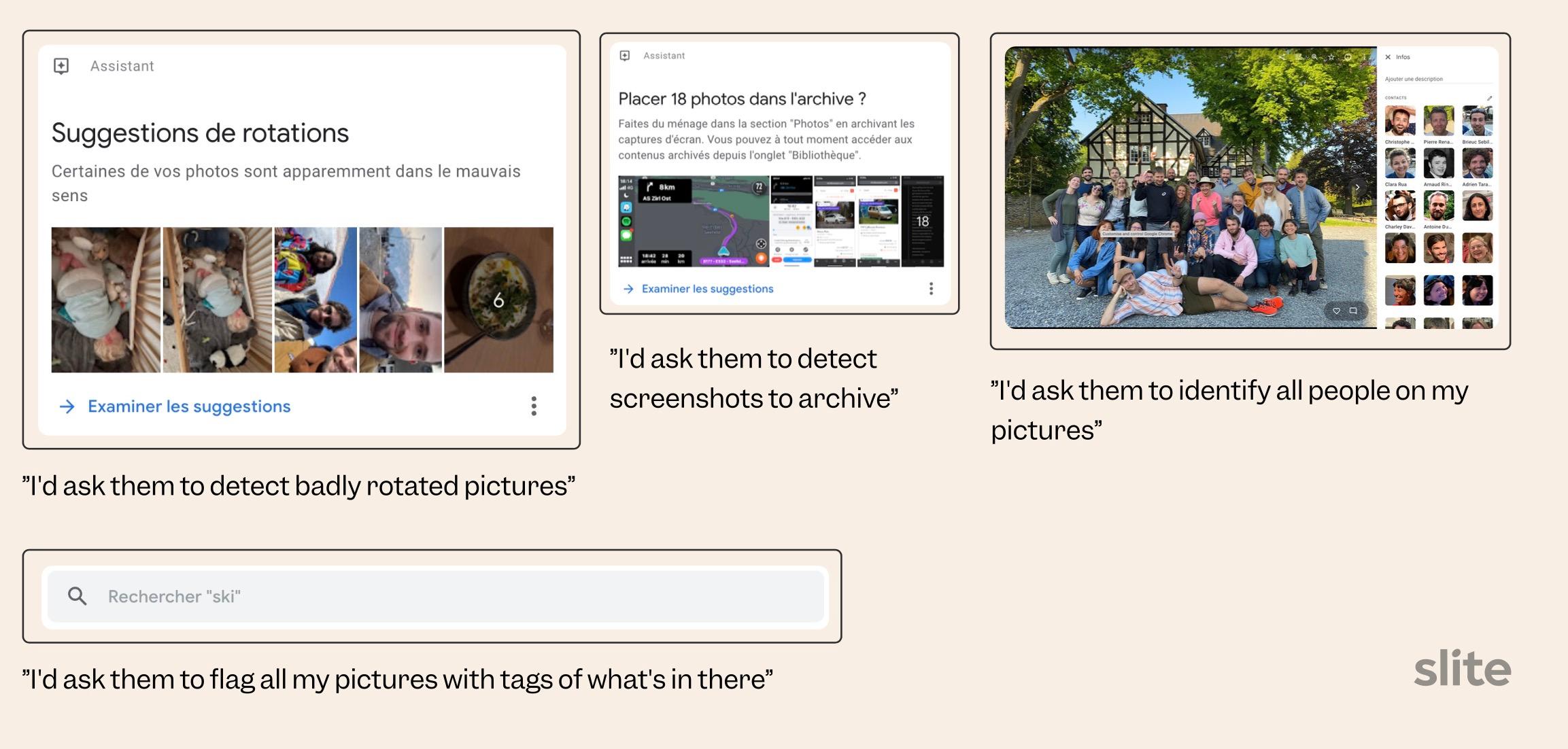What would you do with 100 Robot-CTOs?
If you're like every other product team right now, you're probably asking yourself "What should we build with AI?".
In itself, it's not the most valuable, the real question is what problems can you uniquely solve for your users that these new capabilities unlocked.
In the span of a month, in December 2022, we went from a world where AI was almost only a research field, or where applying it to product was reserved to the Facebook, Google and like... to a world where any teenager with a computer could put an AI application in production in a few days.
It was so clear in our team. One of our devs, Jason, presents us at each of our latest "Offslite" with the state of the arts models, and amazing vulgarisations of how they worked. It was for our intellectual curiosity, to give us a taste of what could be doable in a few years.
3 months after his latest presentation, in November last year, ChatGPT and their Davinci model showed we just had passed a critical milestone.
In December, we were hard at work building prototypes.
In January, we had released the beta of "Ask", the first AI-assistant based on a team knowledge base, able to answer any question you have on your team's docs, with sources and verified answers.
This show how radical a change we just went through.
And surely, soon after, our Twitter, Linkedin, ProductHunt feeds were flooded with AI. But mostly demos, very cheap GPT implementation, or useless features.
Which brings the question, how do you build with AI? How do you ideate on what features you could build that would actually bring value to your user?
What AI can't do
LLMs are not doing magic. They built a way to understand our world, based on how we write.
Which means they can't know what they can't know, they can't work on a problem you haven't made easy enough for them to grasp. Seems obvious, but I can already sense from conversation I've had in the last months this will be a big topic in large product organisation.
David Lieb, the founder of Google Photos - one of the best example of application having put in production countless AI feature before it was easy - say it better:

The opposit is also true. If 100 of super smart people - without extra context that what you give them - are able to solve a problem for you in your app, then likely, you can apply AI to it.
The robot-CTO question
What would you do if you had, say, 100 of your CTO, available for you and you only, 24/7, able to do things on your behalf, in your application (not as a product builder, as the end user)?

This simple question unlocks all the ideation you need on AI, and also might prevent you from doing things just because you can or because it seems cool.
If you look at Google Photos, as this reasoning originally comes from its founder, here is how they put it in application:

How we apply it to our category, the knowledge base?
If you're like 99% of developers, product builders or knowledge workers out there, documenting your work is a pain. In fact, we believe building a true Single Source of Truth was not achievable by humans. At least, until AI.
We are building Slite as the first knowledge base on autopilot, as we can now remove the "chores" of documentation, and focus on the value you get writing and reading your team knowledge.
Documentation used to be an enormous hassle:
- Documenting being an after the facts effort, and limited to maybe 1/10th of the company knowledge
- Maintenance taking a massive toll on your team, having them to guess which pages would need updating, or deprecating, to the point any large teams these days need a dedicated knowledge manager if they want to keep a useful documentation.
- And all this to have the final job of a knowledge base, finding information, a job requiring to search for 10 different keywords and cross comparing all the results to maybe find your answer
With the reasoning on "what would you ask your little army of robot-CTOs", we can solve most of these.
We started on the last part with Ask, a way for you to just type in any question and get a verified answer based on your team's writing.
"Read all my docs, and when I ask something, just give me an answer with the sources you used"
We are now building on the rest. On the creation side, we can invite our little assistants 🤖 to relevant Slack channels and meeting recording, and ask them
Scan all this information, and when relevant, suggest me pieces of the knowledge base that should be updated, or new nuggets of information we should document for the future.
And similarly when it comes to maintenance:
Detect what type of information each doc contains.
If never used and it looks like a meeting, offer me to archive them.
If it looks like canonical knowledge and it's not verified, detect the SME, and ask them to verify or outdate it.
—
This is a very small snippet of our thinking behind our next evolutions to provide a radically simpler experience to our users, one where we do the busy work for them, and really the only way we believe knowledge bases can reach their full potential.
If you liked this topic, share on HN or Twitter how you would apply this reasoning on your product, and follow us to see some of these thinking come to life in Slite's next releases 🎉

Written by Christophe Pasquier
Christophe Pasquier is Slite’s co-founder and CEO. Chris’ goal is to help teams do incredible work in better environments, by helping them embrace remote work and async communication. He currently lives in Berlin with his wife and baby Noé. Find him @Christophepas on Twitter!


